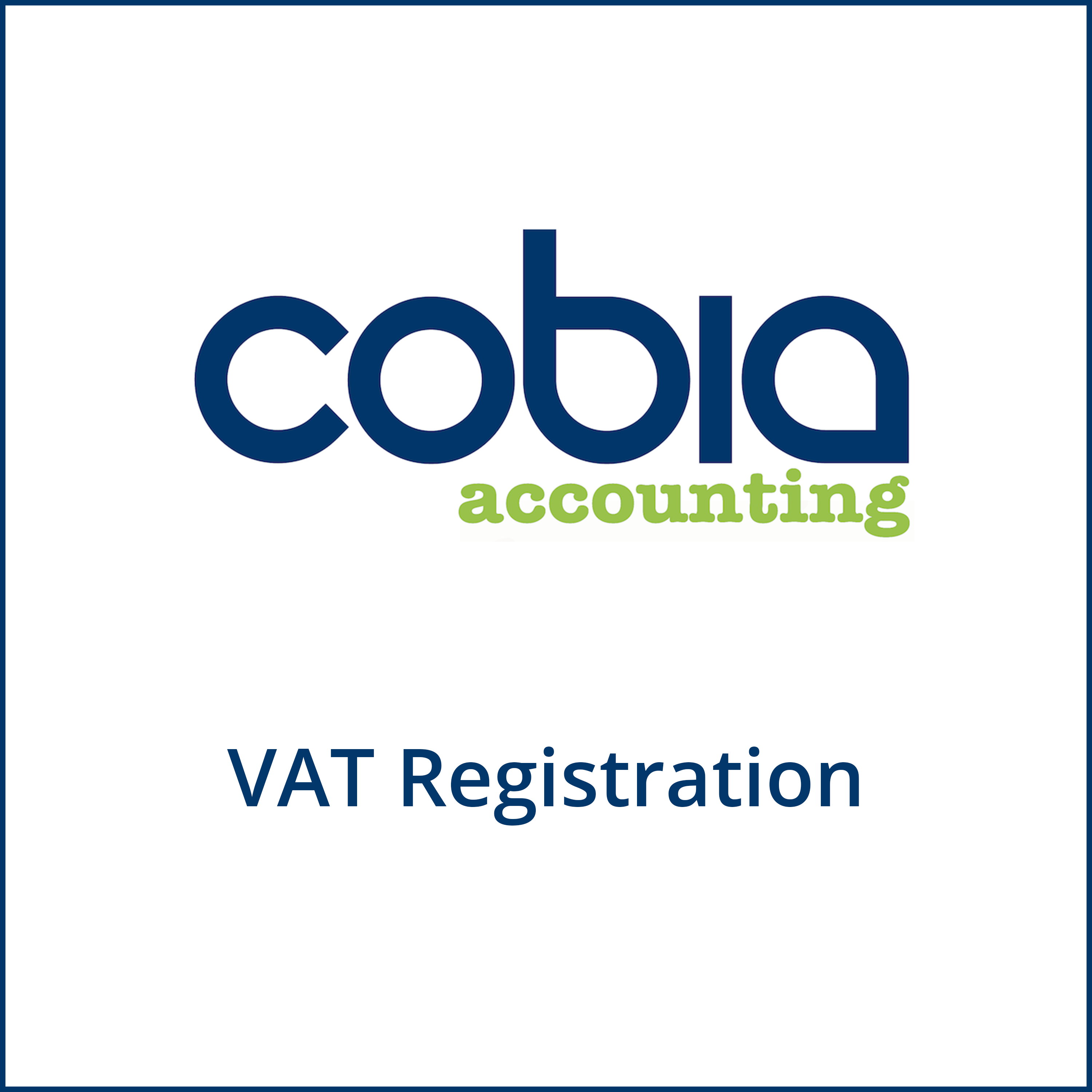
You must register for VAT if: your VAT taxable turnover is more than £85,000 (the 'threshold') in a 12 month period, you receive goods in the UK from the EU worth more than £85,000 or you expect to go over the threshold in a single 30 day period.
There's no threshold if neither you nor your business is based in the UK. You must register as soon as you supply any goods and services to the UK (or if you expect to in the next 30 days). You may have to register for VAT if you take over a business that's already registered.
VAT registration is compulsory for businesses if their turnover in any 12 month period exceeds £85,000 (from 1st April 2017).
This is referred to as the VAT registration threshold. It may however be beneficial for certain businesses to voluntarily register for VAT, even if they don’t expect to breach the VAT threshold.
If you are not obliged to register for VAT but are unsure as to whether you would benefit by voluntarily doing so, Cobia can help by assessing your specific situation.

VAT registration is no longer the simple and easy process that it used to be.
Due to numerous VAT frauds, HMRC has now tightened the requirements and carry out random checks on businesses applying for VAT registration. A genuine business should have no problems registering for VAT, however, expert help and advice will make this process less onerous for you.
Our partners, Cobia, register over 150 businesses for VAT with HMRC every month and fully understand the requirements. As a result, they can deal with any questions HMRC may have and help you provide the necessary information if your application is selected for random checks.

Using this scheme you pay VAT on invoices issued to customers and invoices received from suppliers irrespective of whether they have been paid or not. Normally this scheme is beneficial if VAT on your expenses is greater than VAT on your sales. You are obliged to use this scheme if your annualised turnover exceeds £1.6m
Most startup businesses benefit from using this scheme as it means you pay VAT based on cash received in your bank and not sales invoices issued. This is therefore very helpful from a cash flow perspective. This scheme is applicable for businesses with an annual turnover of less than £1.6m
This scheme is an incentive provided by the government to help simplify VAT for small businesses. This normally benefits businesses that don’t have much VAT to claim on their expenses. For example, a consultancy business could benefit from choosing to register for a Flat Rate Scheme. Businesses registered under this scheme charge VAT at the standard rate, which at the moment is 20%. Based on the nature of your business HMRC will advise you of the flat rate you need to apply to your Gross Sales (ie. sales including VAT) when paying your quarterly VAT bill. Typically flat rates can be anywhere between 11% to 16% and will allow you to retain some of the VAT you have collected as additional income for your business.
Once you have decided that you want your business to be VAT registered and have either selected one of our incorporation packs that includes VAT registration or have simply added this to your order during our company formation order process, our partners Cobia will contact you via email to advise you of the additional information needed to complete your VAT registration. Once the application has been filed it can take between 2 to 6 weeks for HMRC to respond to the application.
If your application is selected by HMRC for random checking then there may be additional information and correspondence required. Cobia will deal with this on your behalf however additional charges may apply in such cases. Cobia will agree these extra charges with you before carrying out any additional work.
How does VAT work?
As a VAT registered business you have to add VAT at the appropriate rate to everything you sell (usually at 20%). You effectively collect this amount on behalf of HMRC. Normally every quarter you have to prepare a VAT Return and pay this over to HMRC, however, you can set off VAT that you may have paid for any goods and services you bought against the VAT you have collected.
Once you register for VAT you will be required to file VAT returns (normally quarterly) even if you have not traded during that quarter. If you take up one of Cobia’s accounting services packages, they will assist you in making sure you comply with your obligations in a timely manner.
When is Voluntary registration beneficial to me?
You can benefit from registering for VAT voluntarily (ie if your annual turnover is below the current £85,000 threshold) if you are selling goods that are zero rated (ie the VAT rate on these goods is 0%) or you are exporting goods and services to other VAT registered businesses in EU countries or to businesses and consumers in countries outside the EU.
Similarly, if you anticipate that you will be buying expensive equipment, machinery etc to set up your business then it may help to register for VAT to claim back the VAT you may have to pay on such goods.
There may also be commercial reasons for registering for VAT if your clients are going to be VAT registered businesses and you do not wish to tell them that your turnover is below the VAT threshold limit.
What are Random VAT Checks?
Due to a number of VAT fraud cases, HMRC now wants to make sure that they issue VAT registration numbers to genuine businesses – those who are carrying out a legitimate trade or have full intentions of start trading in foreseeable future. If your business is selected for VAT checks, typically HMRC will be asking for some solid evidence that can prove that the business is trading or will start trading imminently. Cobia understand what documents HMRC will consider acceptable and can
Where can I get more help and advice?
You can call Cobia on 01582 390 111 to discuss your specific circumstances and one of their experienced staff members will be glad to assist.
You can also read additional information on the following Government website https://www.gov.uk/vat-businesses

Any Questions? Call Us FREE! 0808 168 3676
Do you require further assistance? Call our FREE helpline to speak with our professional advisers.